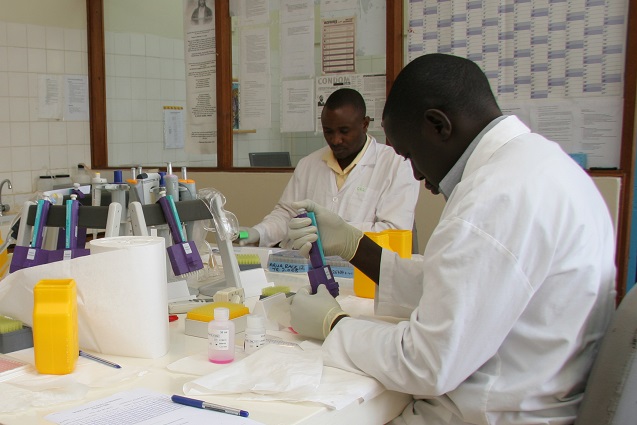The Federal Government has announced the establishment of a gene bank to safeguard the genetic diversity of indigenous livestock breeds, ensuring their survival and integration into modern production systems. The initiative aims to enhance the country’s livestock sector by preserving breeds that have naturally adapted to Nigeria’s environment and developed resistance to local diseases.
Minister of Livestock Development Muktar Maiha made the announcement during the 2025 Ministerial Press Briefing in Abuja, emphasizing that the gene bank will play a critical role in protecting Nigeria’s unique animal genetic resources. He noted that while foreign breeds are often introduced for improved productivity, indigenous livestock remain essential due to their resilience and adaptability.
“We are already making decisions to create a gene bank where we can store all our local indigenous genetics,” Maiha stated. “These breeds have evolved in our environment, they are resistant to diseases, and we don’t want to lose them. Instead, we will integrate them into modern livestock production through strategic crossbreeding.”
Maiha clarified that the government does not intend to replace indigenous breeds with foreign ones but to enhance their genetic potential. By combining traditional and modern breeding techniques, Nigeria aims to create a more sustainable livestock industry that balances productivity with genetic conservation.
The establishment of the Ministry of Livestock Development marks a historic step in Nigeria’s efforts to formalize and modernize its livestock sector, which is valued at approximately N33 trillion. Maiha described the ministry’s creation as part of President Bola Tinubu’s broader vision to transform the sector from an informal trade into a structured and technologically advanced industry.
As part of this modernization drive, the government has initiated a nationwide mapping of grazing reserves, identifying 417 locations covering over 5 million hectares of land. These reserves will be equipped with essential infrastructure, including veterinary clinics, water resources, and schools for the families of herders.
“We are not just mapping grazing reserves; we are also inventorying their quality to ensure they meet modern standards,” Maiha explained. “This is the first step toward formalizing livestock production and ensuring that herders and farmers operate within a structured system.”
To further improve livestock management, the government has digitized cattle routes, grazing reserves, and available water sources. This allows real-time monitoring and decision-making for efficient resource allocation.
“At the click of a button, we can now see what is happening in all grazing reserves across the country,” Maiha said, highlighting the role of technology in reducing conflicts over grazing lands and improving productivity.
The government’s use of digital tools is also aimed at addressing long-standing challenges such as cattle rustling and unregulated movement of livestock. The newly launched National Animal Identification Tagging System will enable authorities to track cattle, reducing losses and improving disease control efforts.
The government’s efforts to modernize livestock production have already attracted interest from the private sector. A Brazilian meat processing giant has committed to investing $2.5 billion in Nigeria’s livestock sector, reflecting growing confidence in the industry’s future.
“We have secured a commitment from a Brazilian company, the biggest player in the meat industry, to invest in Nigeria,” Maiha revealed. “This is a testament to President Tinubu’s vision for the sector.”
In addition, the government is strengthening local vaccine production to improve animal health. Plans are underway to commercialize the National Veterinary Research Institute to ensure Nigeria meets its vaccine production needs. This move is expected to reduce the country’s dependence on imported vaccines and make disease control efforts more efficient.
Maiha expressed optimism about the government’s initiatives, emphasizing that the livestock sector has the potential to contribute significantly to Nigeria’s economic growth and food security.
“With the kind of leadership we have today, these programs will resonate across the country,” he said. “We are committed to transforming Nigeria’s livestock industry through strategic investments, modern technology, and sustainable policies.”
As Nigeria embarks on this ambitious transformation, the gene bank and other modernization efforts signal a new chapter for the country’s livestock industry—one that prioritizes sustainability, technological advancement, and economic growth.










